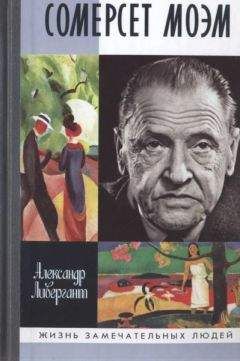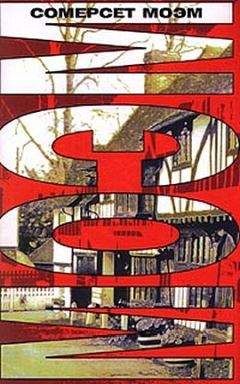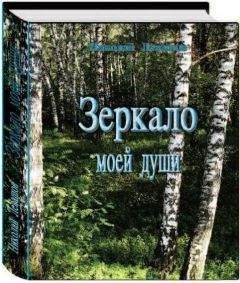Уильям Моэм - Мистер Всезнайка. Рассказы
quay [ki: ], jabber ['dZxbq], tout [taut], tumble-down ['tAmb(q)ldaVn]
"I liked the look of the place right away, from the sea, I mean, as I watched it come closer and closer; and then when we got into the little boats from the steamer and landed at the quay, with all that crowd of jabbering people who wanted to take your luggage, and the hotel touts, and the tumbledown houses on the Marina and the walk up to the hotel, and dining on the terrace — well, it just got me. That’s the truth. I didn’t know if I was standing on my head or my heels.
"I’d never drunk Capri wine before, but I’d heard of it (я никогда раньше не пил вина /с острова/ Капри, но я слышал о нем); I think I must have got a bit tight (думаю, что я, должно быть, слегка надрался; to get tight — надраться, нализаться; tight — тугой;сл. навеселе, подмухой; a bit — кусок, кусочек; небольшоеколичество, чуть-чуть). I sat on that terrace after they’d all gone to bed (я сидел на террасе после того, как все /они/ отправились спать; bed — кровать, постель) and watched the moon over the sea (и смотрел на луну над морем), and there was Vesuvius with a great red plume of smoke rising up from it (и /там был/ Везувий, над которым поднимался большой столб багрового дыма; plume — перо/длинноеилияркое/;струйка, завиток). Of course I know now that wine I drank was ink (конечно, теперь я знаю, что то вино, которое я пил, было что чернила), Capri wine my eye (каприйское вино, как же; eye— глаз, око;myeye— вот те на! вот это да! и т. п.), but I thought it all right then (но тогда мне казалось, что оно какое надо; allright— удовлетворительный; приемлемо, как нужно). But it wasn’t the wine that made me drunk (но пьяным я стал не от вина; tomakesmb.drunk— напоить кого-либо; опьянить кого-либо;drunk— пьяный; опьяненный), it was the shape of the island (а от формы острова) and those jabbering people (и тех орущих людей), the moon (и луны) and the sea (и моря) and the oleander in the hotel garden (и от олеандра в гостиничном саду). I’d never seen an oleander before (раньше я никогда не видел ни одного олеандра)."
tight [taIt], Vesuvius [vI'su: vIqs], oleander ["qulI'xndq]
"I’d never drunk Capri wine before, but I’d heard of it; I think I must have got a bit tight. I sat on that terrace after they’d all gone to bed and watched the moon over the sea, and there was Vesuvius with a great red plume of smoke rising up from it. Of course I know now that wine I drank was ink, Capri wine my eye, but I thought it all right then. But it wasn’t the wine that made me drunk, it was the shape of the island and those jabbering people, the moon and the sea and the oleander in the hotel garden. I’d never seen an oleander before."
It was a long speech and it had made him thirsty (это был долгий монолог, и ему захотелось выпить; speech — речь; выступление/оратора/,спич; thirsty — испытывающийжажду, мучимыйжаждой). He took up his glass, but it was empty (он взял свой бокал, но он был пустой; glass — стекло; стакан, рюмка, бокал). I asked him if he would have another strega (я спросил его, выпьет ли он еще один /бокал/ «Стреги»; tohave— иметь; принимать /пищу и т. п./, есть, пить).
"It’s sickly stuff (отвратительная микстура; sickly — хворый, болезненный; тошнотворный, отвратительный; stuff — материал, вещество; разг. лекарство, микстура). Let’s have a bottle of wine (давайте возьмем бутылку вина). That’s sound, that is (вот это действительно хорошо /для здоровья/; sound — здоровый, крепкий; доброкачественный, хороший), pure juice of the grape (чистый виноградный сок) and can’t hurt anyone (и не может навредить никому; to hurt — причинятьболь; повредить, навредить)."
I ordered more wine, and when it came filled the glasses (я заказал еще вина, и когда его принесли, наполнил бокалы; tocome— приходить, идти; наступать, приходить). He took a long drink and after a sigh of pleasure went on (он сделал большой глоток, и, довольно вздохнув: «и после вздоха удовольствия», продолжил; drink— питье; глоток).
thirsty ['TWstI], juice [dZu: s], sigh [saI]
It was a long speech and it had made him thirsty. He took up his glass, but it was empty. I asked him if he would have another strega.
"It’s sickly stuff. Let’s have a bottle of wine. That’s sound, that is, pure juice of the grape and can’t hurt anyone."
I ordered more wine, and when it came filled the glasses. He took a long drink and after a sigh of pleasure went on.
"Next day I found my way to the bathing-place we go to (на следующий день я очутился на том пляже: «нашел дорогу к тому месту для купания», куда мы ходим /купаться/). Not bad bathing, I thought (неплохое купание, подумал я). Then I wandered about the island (затем я обошел весь остров; towander/about/ — бродить, странствовать). As luck would have it, there was a festa up at the Punta di Timberio (получилось так, что на Пунта-ди-Тимберио /мыс Тиберия — в народном выговоре/ был ежегодный церковный праздник /в честь Богоматери, отмечается на Капри 7-го и 8-го сентября/; luck— судьба; счастье, удача) and I ran straight into the middle of it (и я очутился прямо в середине /праздничной процессии/; torunintosmth. — налетать, наскакивать, наталкиваться на кого-либо). An image of the Virgin and priests (статуя Пресвятой Девы и священники; image— изображение /особ. скульптурное/; фигура, статуя святого;virgin— дева, девственница;theVirgin— Дева Мария, Богородица), acolytes swinging censers (мальчики-служки, размахивающие кадильницами; toswing— качать, колебать; раскачивать, размахивать), and a whole crowd of jolly, laughing, excited people (и целая толпа веселых, смеющихся, возбужденных людей), a lot of them all dressed up (все они разряженные /в пух и прах/; lot— жребий; разг. большое количество, множество;todressup— наряжать; наряжаться, принарядиться /в т. ч. в маскарадный костюм/).
island ['aIlqnd], straight [streIt], priest [pri: st], acolyte ['xkqlaIt], censer ['sensq]
"Next day I found my way to the bathing-place we go to. Not bad bathing, I thought. Then I wandered about the island. As luck would have it, there was a festa up at the Punta di Timberio and I ran straight into the middle of it. An image of the Virgin and priests, acolytes swinging censers, and a whole crowd of jolly, laughing, excited people, a lot of them all dressed up.
"I ran across an Englishman there (там я столкнулся с одним англичанином) and asked him what it was all about (и спросил его, что это происходит: «о чем все это»).
‘Oh, it’s the feast of the Assumption (о, это праздник Успения Богородицы; feast— пир, празднество; религиозный праздник;assumption— принятие на себя /ответственности и т. п./; рел. взятие живым на небо;Assumption— праздник Успения Богородицы),’ he said, ‘at least that’s what the Catholic Church says it is (по меньшей мере, так называет его католическая церковь), but that’s just their hanky-panky (но это просто их проделки = их обман, подтасовка; hanky-panky— обман, мошенничество, плутни, козни). It’s the festival of Venus (это праздник Венеры). Pagan, you know (языческий, знаете ли). Aphrodite rising from the sea and all that (Афродита, рождающаяся из /пены/ морской и все такое; torise— восходить; поэт. возникать, рождаться).
assumption [q'sAmpS(q)n], Catholic ['kxT(q)lIk], hanky-panky ["hxNkI'pxNkI], Aphrodite ["xfrq'daItI]
"I ran across an Englishman there and asked him what it was all about. ‘Oh, it’s the feast of the Assumption,’ he said, ‘at least that’s what the Catholic Church says it is, but that’s just their hanky-panky. It’s the festival of Venus. Pagan, you know. Aphrodite rising from the sea and all that.’
"It gave me quite a funny feeling to hear him (когда я слушал его, у меня возникло какое-то странное чувство; funny— смешной, забавный; странный, непонятный). It seemed to take one a long way back, if you know what I mean (казалось, /его слова/ возвращали куда-то в далекое прошлое, если вы понимаете, что я имею в виду). After that I went down one night to have a look at the Faraglioni by moonlight (после этого, однажды ночью я пошел взглянуть на Фаральони /две скалы напротив восточного побережья Капри/ при лунном свете). If the fates had wanted me to go on being a bank manager (если бы Мойры = богини судьбы хотели, чтобы я продолжал быть управляющим банком; fate— судьба;theFates— миф. Парки, Мойры /три богини в греческой мифологии, предопределяющие ход человеческой жизни/) they oughtn’t to have let me take that walk (им не следовало бы позволять мне совершить эту прогулку; totakeawalk— погулять, прогуляться)."
moonlight ['mu: nlaIt], oughtn't [O: tnt], walk [wO: k]
"It gave me quite a funny feeling to hear him. It seemed to take one a long way back, if you know what I mean. After that I went down one night to have a look at the Faraglioni by moonlight. If the fates had wanted me to go on being a bank manager they oughtn’t to have let me take that walk."
"You were a bank manager, were you (так вы были управляющим банка, да)?" I asked.
I had been wrong about him, but not far wrong (я ошибся на его счет, но не слишком; wrong— неправильный, неверный, ошибочный;far— далеко, на большом расстоянии; гораздо, намного).
"Yes. I was manager of the Crawford Street branch of the York and City (я был управляющим отделения /банка/ "Йорк и Сити" на Крофорд-Стрит; branch— ветка /дерева/; филиал, отделение). It was convenient for me because I lived up Hendon way (мне было удобно, потому что я жил вверх /по улице/, в направлении Хендона; way— путь, дорога; направление). I could get from door to door in thirty-seven minutes (я мог добраться от двери до двери за тридцать семь минут)."
He puffed at his pipe and relit it (он попыхтел трубкой и снова зажег ее; topuff— дуть порывами; дымить, пускать клубы дыма;torelight— зажигать снова).
wrong [rON], branch [brQ: ntS], convenient [kqn'vi: nIqnt]
"You were a bank manager, were you?" I asked.
I had been wrong about him, but not far wrong.
"Yes. I was manager of the Crawford Street branch of the York and City. It was convenient for me because I lived up Hendon way. I could get from door to door in thirty-seven minutes."
He puffed at his pipe and relit it.
"That was my last night, that was (это был мой последний вечер, да). I’d got to be back at the bank on Monday morning (я должен был вернуться в банк в понедельник утром = в понедельник утром я должен был выйти на работу в банк). When I looked at those two great rocks sticking out of the water (когда я взглянул на те две огромные скалы, выступающие из воды; tostick/out/ — втыкать, вкалывать; торчать), with the moon above them (и на луну над ними), and all the little lights of the fishermen in their boats (и на все те огоньки /на/ рыбачьих лодках; little— маленький, небольшой) catching cuttlefish (занимающихся ловлей каракатиц; tocatch— поймать, схватить; ловить /мяч, рыбу, беглеца и т. п./), all so peaceful and beautiful (все /было/ таким мирным и прекрасным; peace— мир; покой, спокойствие), I said to myself, well, after all, why should I go back (и я сказал себе: ну, почему, собственно, я должен возвращаться; afterall— после; в конце концов, все же)? It wasn’t as if I had anyone dependent on me (ведь не то чтобы кто-то зависел от меня; dependent— зависимый; /onsmb./ — получающий помощь /от кого-либо/, находящийся на иждивении).




